Can Garden Of Life Vaginal.probiotics Be Used As A Suppository
How to Prevent and Treat Bacterial Vaginosis, According to Doctors
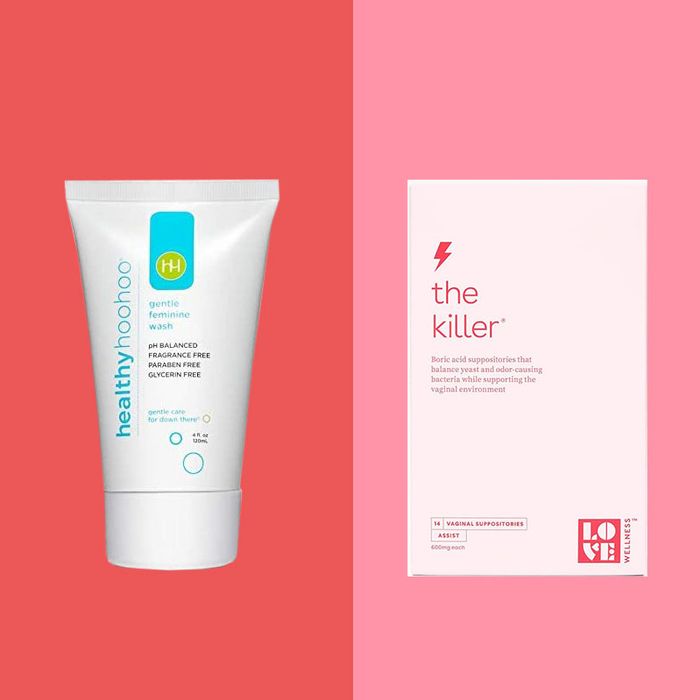
Photo-Illustration: retailers
When you have a cold, you know to reach for something like NyQuil. For a yeast infection, Monistat. But what do you do when you have bacterial vaginosis? This common vaginal infection occurs when normal bacteria that lives in the vagina overgrows, causing an imbalance that affects the pH of the vagina. According to Priyanka Jain, one of the co-founders of Evvy, an at-home vaginal microbiome test, it's more prevalent than yeast infections. "But if you look at Google searches, yeast infections are way more highly searched, which is fascinating to me from a shame perspective," she says. "It's like, it's fine for people to go around saying my vagina is itchy, but no one wants to go around saying my vagina smells like a fish. BV is just not something that people talk about, which is why there are so many people looking for answers."
"I like to describe vaginitis as basically being two sides of the same coin," says Dr. James A. Gohar, an obstetrician-gynecologist and founder of medical practice Viva Eve. "You've got yeast on one side and bacterial vaginosis on the other. When the pH goes up, that's when you end up with bacterial vaginosis, and when the pH goes down, that's when you can end up with yeast, but both of them are part of the normal flora." To be sure that you have BV, and not something else, you should get diagnosed by a doctor, but some of the common symptoms are a fishy odor and thin, grayish discharge. "It's not a sexually transmitted infection, it's just an opportunistic infection," says Dr. Carolyn DeLucia. If the bacteria is present and the environment is perfect for the bacterial vaginosis to grow, that's what grows, instead of the healthy bacteria lactobacilli that would prevent it. BV often occurs after sex with a male partner or around your period, as both period blood and semen have a different pH than the vagina, or during menopause, as the change in hormones can also throw things off. It's also sometimes a side effect of antibiotics, which wipe out both the good and bad bacteria.
Although antibiotics are often necessary to successfully treat BV, the infections do sometimes go away on their own, says One Medical's Dr. Navya Mysore. There are also some preventative measures and over-the-counter treatments that you can try. To find the best at-home remedies, we spoke to Jain, Gohar, DeLucia, Mysore, and two other doctors. Here's what they suggest.
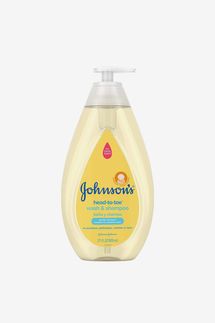
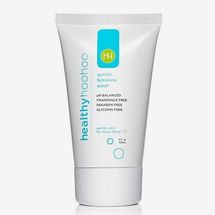
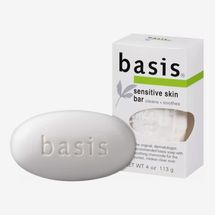
If you're experiencing BV symptoms, you may be tempted to try to be even more clean than normal, but everyone we spoke to advises against excessive cleaning of the vagina. "The vagina maintains its own environment with the host of 'good' bacteria (i.e, lactobacilli) that are negatively impacted by vaginal washing," says Dr. Lynae Brayboy, the chief medical officer at period-tracker app Clue. Cleansing too much or using the wrong product could actually upset your pH and bring on an infection. Dr. Mysore recommends cleaning the vaginal area with just lukewarm water, and says that extremely mild soaps are okay for the outside, but you should avoid scented products and things that are super-stringent. Dr. Gohar says something as simple as Johnson & Johnson baby wash will do the trick, while Dr. DeLucia likes the entire Healthy HooHoo line, as it's made specifically with the vagina in mind. Generally, Dr. DeLucia is against bar soaps, since they can collect bacteria when sitting in the shower, but if you really prefer them, she thinks Basis is "just wonderful."
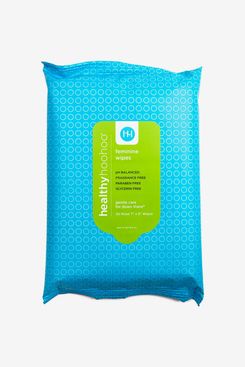
Dr. DeLucia says it's also important to stay clean during intimacy. "A lot of the transfer of the bacteria finding their way into the vagina is from our skin, so maintaining hygiene prior to intimacy, as well as post — always cleansing from front to back — is important," she says. Healthy Hoo Hoo makes these paraben-free, pH-balanced wipes that DeLucia recommends using right before sex, if you don't want to take a shower or aren't at home.
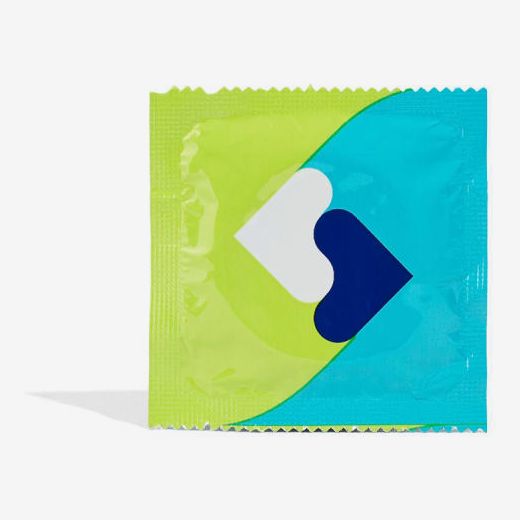
Using condoms during sex can also go a long way toward preventing BV. "This is the most obvious and most important one," says Jain. "Semen has a higher pH than a healthy vagina, so it can raise the pH, creating an environment that allows pathogens to thrive." When we talked to experts about the best eco-friendly condoms, five of them mentioned Sustain's non-GMO, vegan, and fair-trade condoms, which are made from natural latex —and also happen to be "vagina friendly" and hypoallergenic.
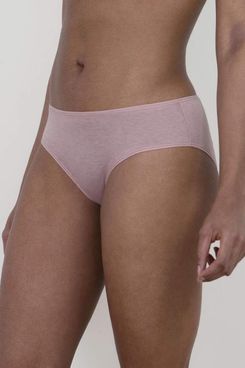
Another lifestyle change you can make is switching to cotton underwear. "Cotton allows your body to breathe," explains Dr. Gohar. "One-hundred-percent-cotton underwear is harder to find than you would imagine, as a lot of products are polyester or silk, but that change will have a huge impact for a lot of people." (He's not exaggerating. Even things advertised as cotton will usually have some mix of nylon or elastane.) Laura Schubert, co-founder of pubic-hair-oil company Fur, told us about Oddobody's underwear, which is made from 100-percent pima cotton. At night, Dr. Gohar recommends ditching the underwear altogether. "You weren't born with underwear; you shouldn't sleep with underwear," he says. "For the same reason that you wouldn't wear socks to bed, because you can create a warm, moist, dark place for yeast or bacteria to grow, it's the same thing. The more we can expose [the vagina] to air the better."
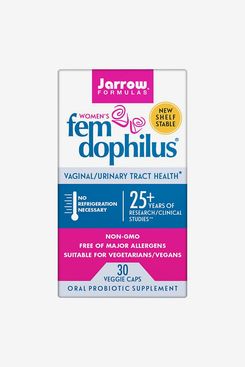
A few of the experts we spoke to recommend a daily oral probiotic to help balance healthy bacteria. Most probiotics, even those marketed for vaginal health, only contain gut bacteria, which won't hurt but won't necessarily help either. That's why it's important to look for one that contains the vaginal bacteria you are looking to restore, like lactobacillus. "The two strains that have been studied extensively are lactobacillus rhamnosus and lactobacillus reuteri, and there are specific probiotics that actually use those two strains," says Dr. Jessie Wei, a functional and integrative medicine physician at Parsley Health. Fem Dophilus, which she recommends to a lot of her patients, contains both.
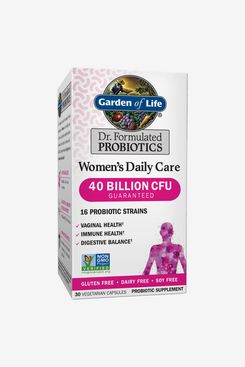
Dr. Mysore also suggests taking a probiotic. She recommends this one from Garden of Life to her patients, which contains lactobacillus rhamnosus and lactobacillus reuteri, among other strains.
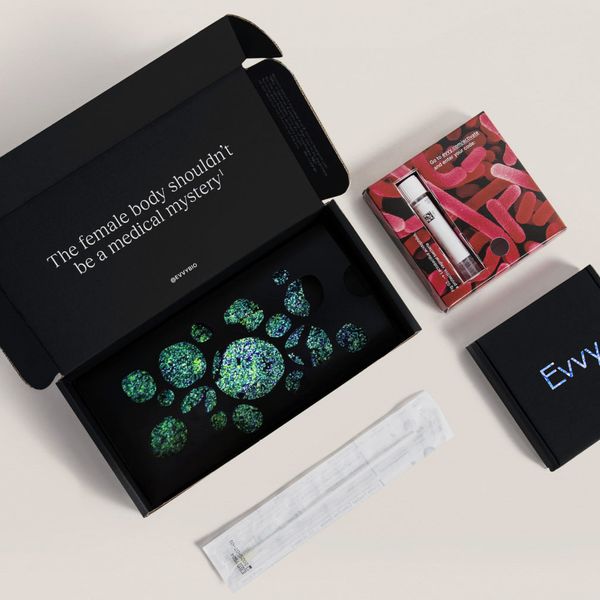
Photo: retailer
Jain is a little more skeptical about probiotics. She believes they can work, but says there is not a universal best option, as all vaginas are different. That's why her company, Evvy, developed an at-home vaginal microbiome test. Once you swab yourself and send a sample back to them, they can tell you everything that is present in the vagina, including the percentage of good and bad bacteria, what it means, and what your best course of action is. "There's so much research showing that the vaginal microbiome is predictive of everything from fertility issues to preterm birth to STI acquisition to cervical-cancer progression," she says, so it's a good thing to be aware of. She says the test can even catch a BV infection before it gets out of hand.
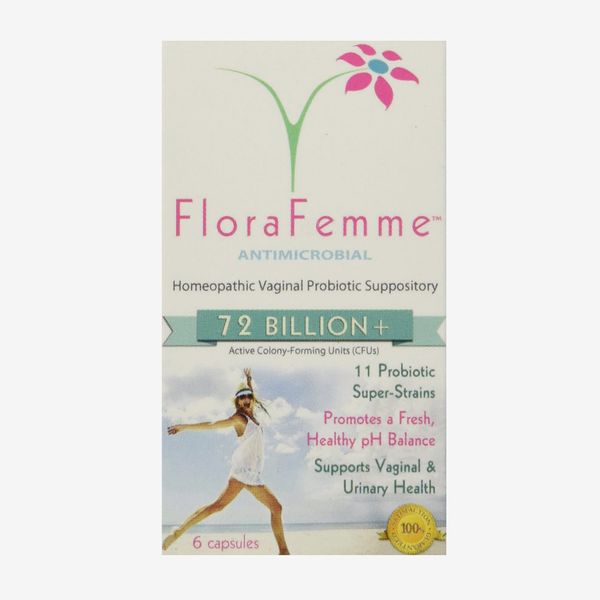
Photo: retailer
Although we've already mentioned this, it's worth saying again: A prescribed antibiotic is the No. 1 recommendation for treating BV. But there are a few things you can try first, one of which is FloraFemme, a vaginal probiotic Dr. DeLucia swears by. "FloraFemme is actually a vaginal suppository, and that is phenomenal," she says. "Up until this year, if you wanted to have a probiotic specifically for vaginal mucosa, you would have to get it out of the country." She recommends using it for six days. "It'll actually help to treat a bacterial-vaginosis infection, change the pH, and reestablish the healthy bacteria. Hopefully once that's reestablished the bacterial vaginosis won't be able to survive." Dr. DeLucia says you can also take it intermittently, like once every two weeks, after your cycle, or after "a particularly fun weekend with a partner," for maintenance and prevention.
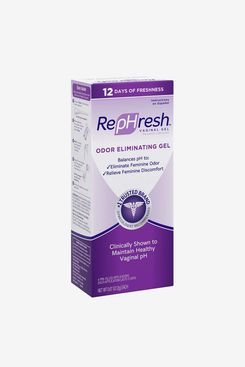
In addition to an oral probiotic, Dr. Wei recommends using this vaginal gel made by RepHresh to balance pH. The oral probiotic contains the two healthy strains of lactobacilli and helps rebuild the vaginal flora, while the gel allows the strains to thrive. She uses it a lot in her practice. "More often than not, after using this, my patients wouldn't have the recurrent infection," she says.
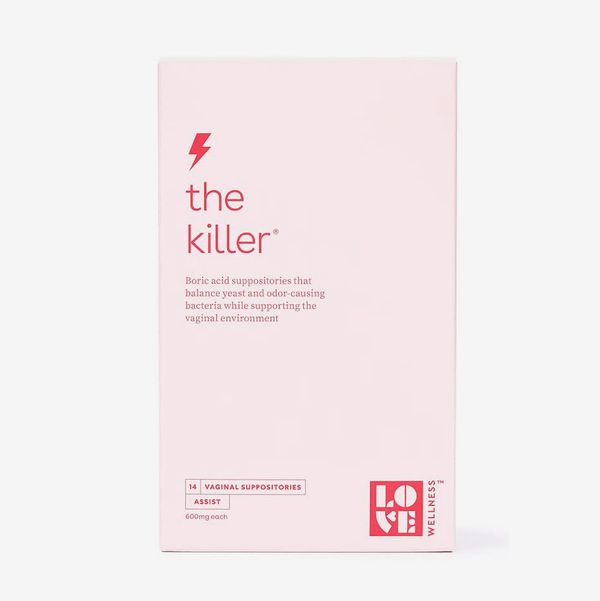
Photo: retailer
"If the infection is just starting, you may have success with boric acid suppositories, especially when you get these infections frequently and you can detect early symptoms," says Dr. Mysore. They can be helpful to use after sex or right after your period. Dr. Gohar recommends tracking your symptoms in order to determine what's triggering an infection so you know when to take something. "Vaginitis symptoms tend to happen due to certain triggers, like either after a workout, or after sex, or right before or after your cycle," he says. "There's something that's happening on a regular basis that's leading to these recurrent infections, and for those patients I find that boric acid can be very, very effective. We can actually neutralize that pH before it starts to get out of whack and cause infection." Dr. Mysore recommends the Killer and says to "use it for a few days after sex or after your period but not to use it for more than five days, as too much use can push your pH balance in the other direction." If you still have symptoms after one to two days of using the suppositories, reach out to your primary-care provider.
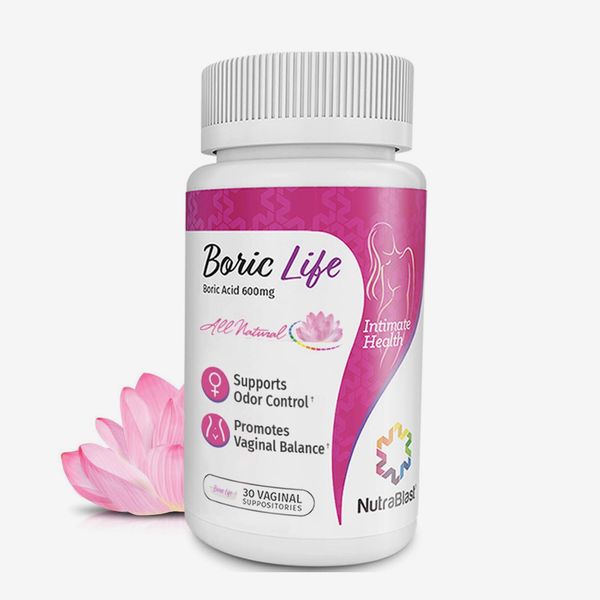
Photo: retailer
This is what Dr. Gohar recommends to his patients. It's $1 less than the Killer and gives you more than twice as many suppositories. It's also an Amazon favorite, with a 4.6 star rating and over 40,000 reviews.
The Strategist is designed to surface the most useful, expert recommendations for things to buy across the vast e-commerce landscape. Some of our latest conquests include the best acne treatments , rolling luggage , pillows for side sleepers , natural anxiety remedies , and bath towels . We update links when possible, but note that deals can expire and all prices are subject to change.
Can Garden Of Life Vaginal.probiotics Be Used As A Suppository
Source: https://nymag.com/strategist/article/how-to-prevent-treat-bacterial-vaginosis-bv.html
Posted by: merrymanblene1972.blogspot.com

0 Response to "Can Garden Of Life Vaginal.probiotics Be Used As A Suppository"
Post a Comment